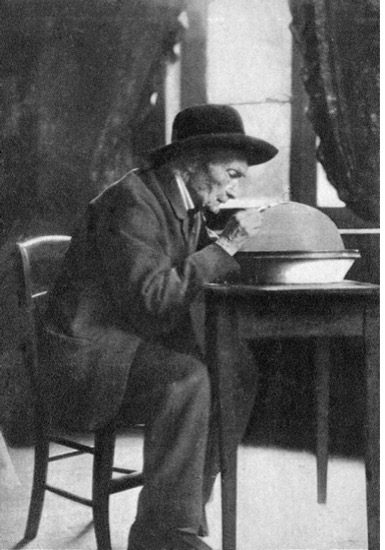As a homeschool parent, you want more than just a science textbook—you’re searching for resources that ignite curiosity, foster a love of learning, and point your children to the beauty of God’s creation.
The Uncle Paul Science Story Series is a treasure for families seeking classical, literature-based science education written by renowned French entomologist Jean-Henri Fabre.
This Copper Lodge Library edition is an abridged replication of the first edition of The Story-Book of Science by Jean-Henri Fabre, originally published in 1917. With Fabre’s keen ability to beautifully describe nature’s intricacies, Uncle Paul embodies the classical learning skills of observation, questioning, and discovery—skills that will inspire your homeschool journey.
If you’re searching for a science resource that blends quality literature, hands-on learning, and a biblical perspective, the Uncle Paul Science Stories are the perfect addition to your homeschool library. Let these timeless tales guide your family into the wonders of God’s creation!
Introduction to the Uncle Paul Science Story Series
Most people would not think of inviting insects to their picnic or choosing a picnic spot next to a patch of decaying mushrooms swarming with grubs! However, if you had the pleasure of picnicking with Uncle Paul, you would eagerly oblige.
“Uncle Paul” is the fictitious main character of the Uncle Paul Science Story series. He is an “excellent, God-fearing man”[1] who is highly esteemed for his great learning of the natural world. He is uncle to three charming children:
- Claire, a soft-spoken ten-year-old girl who is observant and thoughtful
- nine-year-old Jules, a lively, incessant questioner and fact-checker
- Emile, the youngest, predictably drawn to messy adventures and his “box of playthings”
In one story, Uncle Paul wisely observes that Emile’s “attention is awakening”[2] and that he will soon part ways with his little toys to begin new adventures in the natural world.
The Real Uncle Paul: Henri Fabre’s Life and Legacy
These winsomely told science stories are based on the recollections of the true Uncle Paul—Jean Henri Fabre. Fabre (1823-1915), a prominent French entomologist, conducted detailed studies of insects and their behavior over a period of eighty years.
Self-taught and raised in severe poverty, Fabre was blessed to discover the wonder of the natural world early in his childhood. He embraced Creation as a witness to the glory of his God. During his life, Fabre used his skills as a scientist and teacher to humbly proclaim God’s awe-inspiring works.
In 1879, Fabre’s research was finally published. Prominent scientists and naturalists immediately recognized the quality of his scientific investigations. His beautifully descriptive writing was admired by philosophers, poets, essayists, and playwrights.
Victor Hugo, author of Les Misérables, called Fabre the “Homer of the insects”[3] because of his eloquent descriptions. At his death, Fabre was memorialized as being “one of the most profound and inventive scholars, one of the purest writers and one of the finest poets of the century. . . .”
The twenty volumes of his scientific observations have been called
“A magnificent hymn to the glory of God.”[4]

Henri Fabre: A Man Who Saw God in Creation
If you could ask Fabre, he would assess his life quite differently than his famous peers portrayed him. In his short autobiography, Fabre proclaims:
“After eighty-seven years of observation and reflection, I can not so much say that I believe in God as that I see Him. Without Him, I understand nothing: without Him all is darkness. My studies have both preserved and strengthened this faith in me, and have even increased it.”[5]
Because of Fabre’s love of God and his early encounters with God’s creation, Fabre had a passion for sharing the splendor of God’s world with young children. His “Uncle Paul” stories are invitations to children to come and discover the natural world for themselves.
Uncle Paul Science Stories: A Resource for Families
Recognizing the value of Fabre’s stories, Classical Conversations republished his work in a three-volume set:
- Exploring Insects with Uncle Paul
- Exploring the Heavens with Uncle Paul
- Exploring the Oceans with Uncle Paul
This set is part of the Scribblers At-Home collection of resources designed for families with young children. Each collection—Uncle Paul’s Science Stories, The Stories of Rome series, and the Echoes series—is intended to mix reading aloud with rich conversations and hands-on learning experiences. The Uncle Paul series prepares families to become lifelong explorers of the natural world, while the other series prepares families for the studies of history and literature.
Listen to how Scribblers At Home is the perfect homeschool resource for your whole family on the Everyday Educator podcast.
Exploring Creation with the Uncle Paul Series
Each Uncle Paul book is divided into manageable weekly readings that pair well with the science topics of the Classical Conversations Foundations program.
Parents will find a “How to Savor This Book” section for each book, which offers ideas for practicing the classical skills of the Five Core Habits and Five Common Topics. Tips for additional activities are found in the “How to Take This Outside” section.
The detailed illustrations and drawings selected for each story will also delight your family. Uncle Paul’s Science Stories are meant to woo children (and you!) to go outside and explore God’s creation together!
How Uncle Paul Models Classical Learning
Not only are these volumes filled with fascinating content about the natural world, but they also model important classical skills for parents. Uncle Paul demonstrates how to make careful observations and ask good questions that inspire more questions.
For instance, in Exploring Insects with Uncle Paul, Uncle Paul answers the children’s questions about “milkmaid ants” by drawing their attention to how ants ascend and descend an elder tree’s trunk. Uncle Paul observes:
“Those ascending are the more eager. . .. Those descending go in a leisurely manner, with short steps.”[6]
Are you intrigued? Uncle Paul is a master at asking good questions that invite children to make their own careful observations and discover the wonders that are hidden on a tree branch.
Beautiful Descriptions That Captivate the Imagination
Uncle Paul captures his readers’ imagination with his beautiful and rich descriptions of the world. For children and adults, readers build their vocabulary while delighting in a well-told story!
In Exploring the Heavens with Uncle Paul, Uncle Paul describes the benefit of lightning bolts, “Each of those lightning flashes that make you start with fear is a pledge of general salubrity (sah-LOO-brih-tee; well-being); each of those claps of thunder that freeze you with fear is a sign of the great work of purification that is operating in favor of life.”[7]
Later in the passage, Uncle Paul instructs the children,
“Let us beware then of a foolish terror when it thunders, but lift up our thoughts to God, from whom the thunder and the lightning have received their salutary mission.”[8]
Science in the Context of a Loving Family
Set within the context of a loving family, these stories provide a beautiful picture of how science should be studied—observing first-hand the wonders of God’s Creation and celebrating discoveries with others.
These Uncle Paul stories are meant to be the welcome mat for your own family’s discoveries and explorations of God’s creation. They are to inspire you and your family to draw the same conclusion as Fabre–“My studies have both preserved and strengthened this faith in me, and have even increased it.”[9]
Conclusion: Inspired by Uncle Paul and Henri Fabre
The Uncle Paul Science Story Series offers families a rich and timeless way to explore the wonders of God’s creation through the eyes of Jean-Henri Fabre, a devoted entomologist and master storyteller. These beautifully written tales encourage children to observe nature, ask thoughtful questions, and develop a deep appreciation for the natural world—all within the framework of a loving, faith-filled family.
This series is an invaluable resource for homeschool families, whether you’re looking to inspire curiosity, cultivate classical learning skills, or simply enjoy meaningful stories together.
Read more about The Uncle Paul series classical take for learning about science:
- Exploring Insects with Uncle Paul: A Homeschool Science Guide
- Homeschool Science Curriculum: Exploring the Heavens with Uncle Paul
- Exploring the Oceans with Uncle Paul: A Classical Homeschool Science Resource
[1] Meter, Stephanie B. “The Six.” Exploring Insects with Uncle Paul, 1st ed., vol. 1, Classical Conversations MultiMedia, Southern Pines, NC, 2021, p. 25.
[2] Meter, 27.
[3] O’Brien, Rev. Monsignor, editor. “Jean Henri Fabre—The Homer of the Insects.” The Sacred Heart Review, vol. 56, no. 3, 1916, p. 8.
[4] O’Brien, 8.
[5] O’Brien, Rev. Monsignor, editor. “Jean Henri Fabre—The Homer of the Insects.” The Sacred Heart Review, vol. 56, no. 3, 1916, p. 8.
[6] Meter, Stephanie B. “The Cows.” Exploring Insects with Uncle Paul, 1st ed., vol. 1, Classical Conversations MultiMedia, Southern Pines, NC, 2021, p. 37.
[7] Meter, Stephanie B. “Thunder and the Lightning Rod.” Exploring the Heavens with Uncle Paul, 1st ed., vol. 2, Classical Conversations MultiMedia, Southern Pines, NC, 2022, p. 57.
[8] O’Brien, Rev. Monsignor, editor. “Jean Henri Fabre—The Homer of the Insects.” The Sacred Heart Review, vol. 56, no. 3, 1916, p. 8.





